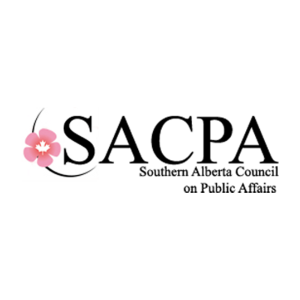
Southern Alberta Council on Public Affairs (SACPA)
Society & Culture

Can Floods and Forest Fires be more Accurately Predicted using 3D Technology? (Part 1)
 2018-04-12
2018-04-12
Download
Right click and do "save link as"
The terrestrial biosphere is under increasing pressure as a result of climatic changes, human disturbance, and secondary effects of these, including fire and pathogen/insect outbreaks. In many regions, land surface changes may be occurring more rapidly than expected.
The Advanced Resolution Terradynamics Monitoring System Laboratory (ARTeMiS) is dedicated to the characterization of process feedbacks through the 3D environment in both space and time, and from plant to region. The fusion of Light Detection and Ranging (LiDAR) research, spectral and active remote sensing tools, in situ measurements, and long-term environmental monitoring of ecosystems provides process-based understanding at scales that are relevant for making decisions.
With an emphasis on fire and water issues, the speakers will explain how advancements in 3D monitoring technologies improve our ability to forecast and prepare for some of the natural resource and hazard challenges faced by Albertans.
Speakers: Dr. Chris Hopkinson and Dr. Laura Chasmer
Dr. Chris Hopkinson founded the ARTeMIS Lab in 2013, when he joined the University of Lethbridge after working as an Environmental Research Scientist with CSIRO in Canberra, Australia. Prior to this, he directed the airborne Light Detection and Ranging (LiDAR) research operations and outreach of the Canadian Consortium for LiDAR Environmental Applications Research (C-CLEAR), while employed as a Research Scientist and Lecturer at the Applied Geomatics Research Group in Nova Scotia. With a background in engineering and geography, Chris' earliest and still active research interests are water and forest resources and how they change through time. Chris is interested in the integration of in situ, high-resolution remote sensing, spatial and temporal data sources to better understand hydrological and biological process dynamics in mountain and northern environments.
Dr. Laura Chasmer is an Assistant Professor in the Department of Geography at the University of Lethbridge and member of the ARTeMiS Lab. She did her Ph.D. in hydro-meteorology and remote sensing at Queen's University as part of the Canadian Carbon Program. Laura has worked with airborne and terrestrial LiDAR data since 2000, and with leading researchers in the USA, Canada, Australia, and the UK. Laura's research integrates ecosystem processes in ecology, hydrology and meteorology with an advanced understanding of spatial and temporal remote sensing data analysis. Her research focus has gradually shifted towards wildfires as a result of her Boreal Forest field sites being destroyed in the Slave Lake Fire of 2011.
Moderator: TBA
Date: Thursday, April 12, 2018
Time: Doors open 11:30 am, Presentation 12 noon, buffet lunch 12:30 pm, Q&A 1 – 1:30 pm
Location: Royal Canadian Legion (north door) 324 Mayor Magrath Dr. S. Lethbridge
Cost: $14 buffet lunch with desert & coffee/tea/juice or $2 coffee/tea/juice. RSVP not required
Visit the SACPA website: http://www.sacpa.ca
view more
More Episodes
012345678910111213141516171819
Create your
podcast in
minutes
- Full-featured podcast site
- Unlimited storage and bandwidth
- Comprehensive podcast stats
- Distribute to Apple Podcasts, Spotify, and more
- Make money with your podcast
It is Free
- Privacy Policy
- Cookie Policy
- Terms of Use
- Consent Preferences
- Copyright © 2015-2024 Podbean.com





